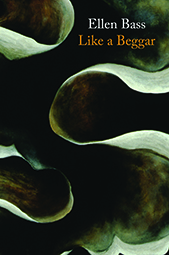When Poetry and Comics Intersect
The cross-pollination between comics and poetry may seem unexpected, but it’s certainly a creative collaboration that has become more popular within the past decade. Evidence of the two forms meeting occurs again and again: Poet-turned-novelist Paul Beatty alludes to the Hernandez brothers’ Love and Rockets in his second poetry volume Joker, Joker Deuce (Penguin, 1994). In Alan Moore and Dave Gibbons’s The Watchman, the main character/villain Adrian Veidt draws his alter-ego from a recollection of Percy Bysshe Shelley’s “Ozymandias” as he justifies creating a global threat. Poetic lines from Henry Dumas’ “Rootsong” appeared in the #3 issue of The Black Panther, integrated into the comic written by Ta-Nehisi Coates.
Such works illustrate a growing interest in the overlap between comics and poetry. Perhaps adults relate to the overarching themes and allegories that fuel so many graphic interpretations of larger-than-life superheroes.
Being immersed in comics isn’t necessary for seeing how many of these poems elucidate human nature, but the merging of poetry and comics offers an opportunity for less traditional perspectives from familiar and popular characters. A few collections prove that the urge to talk about superheroes is not limited to full-color panels or summer blockbuster movies. This increasing presence of comics combines the significance of storytelling via images and verse in a culture that relies on more stimuli than just words. It can also stress the recurrence of archetypes in particular types of stories, and the growing presence of pop culture in a diverse range of poems can be seen as a signal for how these poems are becoming more common.
An early example is Krypton Nights by Bryan Dietrich (Zoo Press, 2002), which centers around Super Man and his longing for a lost home. This was one of several literary works referencing comics in Stephen Burt’s 2009 Michigan Quarterly Review article “Poems about Superheroes,” which noted the recurring trend.
While Superman was Dietrich’s focus, Jeannine Hall Gailey’s Becoming the Villainess (Steel Toe Books, 2006) features persona poems based on women in fairy tales and comic books. The book takes a more feminist turn in writing about women who are often downplayed in comparison to their male counterparts. Consider her poem “Female Comic Book Superheroes” featured on Garrison Keillor’s Writer’s Almanac.
A year later, A. Van Jordan released Quantum Lyrics (Norton, 2007). Although Jordan focuses much of this collection on Albert Einstein and his wife and the work that they do to create physics equations, some poems consider the potential physics conundrums created by the highly unlikely abilities of superheroes, like “The Flash Reverses Time.”
Missing You, Metropolis (Graywolf Press, 2010), Gary Jackson’s debut collection, departs from Jordan’s strategy of creating a suite of poems inspired by physics and superheroes by speculating on how superheroes could change situations that he experiences, like a bank robbery or reading a comic book. Missing You, Metropolis also places characters in more mundane scenarios like “Nightcrawler Buys a Woman a Drink.”
The focused and much briefer volume Bat & Man: A Sonnet Comic Book by Chad Parmenter (Finishing Line Press, 2012) is a chapbook paired with black and white illustrations by Mark Cudd. Parmenter’s sonnets about Batman are spare, moving, and offer emotional insight into the hero and his trauma. Many of these poems offer first-person insights that often don’t fully emerge in comics that have traditionally been written for younger audiences. Poetry, however, allows writers like Dietrich, Gailey, Jackson, and Parmenter to explore more mature situations. In “Sonnet on Selina’s Machine,” Batman leaves a voice mail message for Catwoman:
I need
you to return my call. I swear
your alter ego’s name is safe with me.
I need it that way, need her to stay clear
and skylined on skyscrapers’ tips, to fleefrom me, but not this far ahead, I’m near
now, on the fire escape. Pick up. I see
your shadow on the blinds. I hear your purr.
Two years after Parmenter’s chapbook, the thematically-focused anthology, Drawn to Marvel: Poems from the Comic Books (Minor Arcana Press, 2014), probably the first of its kind, gathered earlier poems by established and new voices. It includes a range of characters across time, cultures, and comic book imprints that reflect the varied obsessions of comic book fans. This collection gathers poems by 140 contributors, including Lucille Clifton, Sherman Alexie, d.a. powell, Campbell McGrath, Rae Armantrout, Adrian Matejka, Crystal Williams, Dorianne Laux, and collaborative poems about Popeye by Denise Duhamel and Maureen Seaton.
Aside from the print publications, a more interesting commingling of poetry and comics appears among poets from the poetry slam scene experimenting, rendering new perspectives, and alluding to comic book characters in poetry and pop culture criticism online. Black Nerd Problems, a blog run by Editor-in-chief William H. Evans and a cadre of staff writers who are mostly poets, offers critical, and sometimes hilarious, commentary with intersectional viewpoints on individual comic book issue debuts, as well as reviews of television shows, video games, and other pop culture phenomena. One notable spoof includes “The Wakanda Barber Shop,” which capitalizes on the growing number of past and recent black comic book characters.
Unlike Black Nerd Problems, FreezeRay Poetry, an online journal helmed by Editor-in-Chief Rob Sturma, focuses on poetry and fiction inspired by pop culture. Its ten existing issues have featured poems about Black Panther, Jean Grey, Jessica Jones, Magneto, Spider-Man, Bruce Banner and Rogue, and several members of the X-Men.
As this growing body of online and print publications grows to encompass younger and older writers, writers of color, and women writers, it could also lead to shifting what has been problematic about the prevailing narratives in comic books of the past since graphic alternate universes began.


